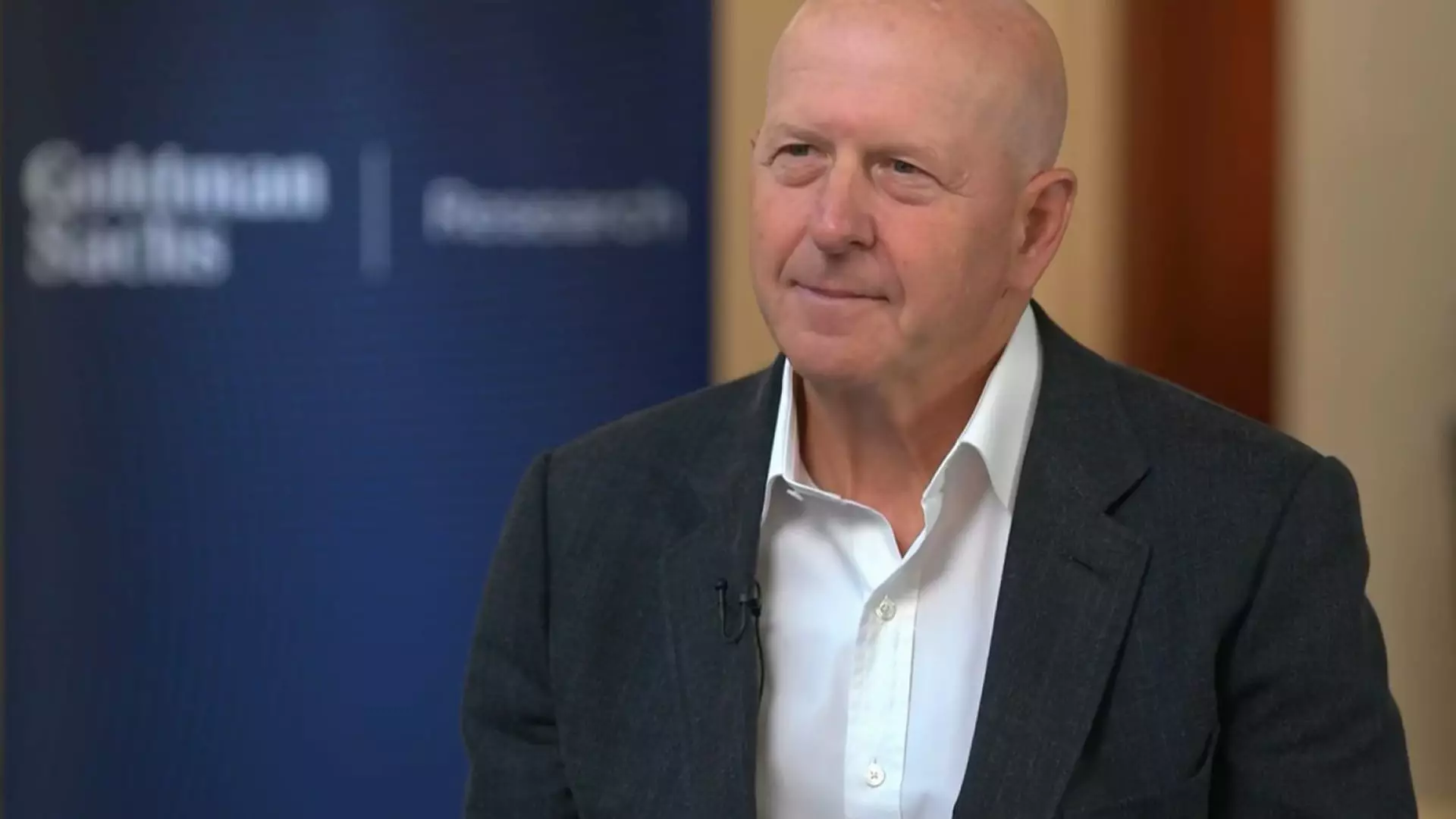In an astonishing display of financial acumen, Goldman Sachs recently reported first-quarter earnings that far surpassed analysts’ expectations, raking in a profit of $4.74 billion. This remarkable number corresponds to earnings of $14.12 per share, a significant jump from the estimated $12.35. While these figures may seem encouraging at first glance, they serve as a veneer that obscures deeper vulnerabilities within the financial titan’s operations, directly mirroring the turbulence of the broader economic landscape under President Trump’s trade policies.
Equities Trading: The Silver Lining?
Goldman’s robust performance has been prominently attributed to a startling 27% increase in equities trading revenue, which hit approximately $4.19 billion. A staggering $540 million more than analysts anticipated, this leap highlights a sectorial strength that stands in stark contrast to the firm’s other dwindling divisions. The global banking and markets division, in which this surge occurred, saw an overall revenue uptick of 10%, reaching $10.71 billion. It raises an essential question: Are these short-term gains sustainable, or merely a bubble poised to burst once the fleeting volatility subsides? The sharp focus on equities trading should not obscure the troubling reality that Goldman’s other income streams are struggling to keep pace.
The Dark Clouds Over Asset Management
Despite the equity trading windfall, the firm is not without its shadows. The asset and wealth management division reported a decline of 3%, generating $3.68 billion—just shy of expectations. This decline underscores a critical vulnerability; the firm’s ability to navigate more stable revenue avenues appears to be faltering. Revenue from crucial investments such as private equity, public stock, and debt instruments experienced significant drops, warning of potential instability in the future. If Goldman cannot adequately support its asset management division, the entire company stands exposed to risk, and investors should remain vigilant.
Investment Banking Blues
Adding to the cautionary narrative, Goldman revealed an 8% decline in investment banking fees, amounting to $1.91 billion, right below analyst projections. The dip in advisory revenue is a stark illustration of the challenges posed by a less favorable economic atmosphere. With the flurry of deal-making that usually characterizes this segment stagnant, it poses a more significant question about whether Goldman can sustain profitability in a climate marked by trade tensions and pervasive uncertainty.
CEO Solomon’s Confidence: A Balancing Act
In light of alarming shifts in the operational environment, CEO David Solomon remains optimistic, asserting the firm’s readiness to support clients through these turbulent times. However, the reliance on equities seems precarious; amidst the uncertainties unleashed by Trump’s aggressive trade policies, one must ponder how long this optimism can hold against the winds of change. As rivals like JPMorgan Chase and Morgan Stanley also post strong equity trading figures, one can’t help but wonder if Goldman’s current success is merely a reflection of a broader trend or a fleeting advantage.
The Broader Market Context
Market volatility has become a hallmark of the current administration, as evidenced by the swings following economic policy changes. With Goldman shares plummeting 14% this year, hovering over the brink amidst prevailing trade conflicts, there is an ominous feeling that even the most stable financial institutions are not immune to the rippling effects of these policies. What’s particularly concerning is the larger context; banks previously considered stalwarts are now locked in a precarious battle with an unstable market ecosystem.
While Goldman Sachs showcases impressive short-term earnings, the underlying issues related to its asset management and investment banking divisions cannot be ignored. Stakeholders and analysts alike should approach Goldman’s future with cautious realism, recognizing the potential pitfalls lurking beneath its recent successes. The economic landscape is fraught with challenges, and whether Goldman can navigate these turbulent waters remains to be seen.


Leave a Reply